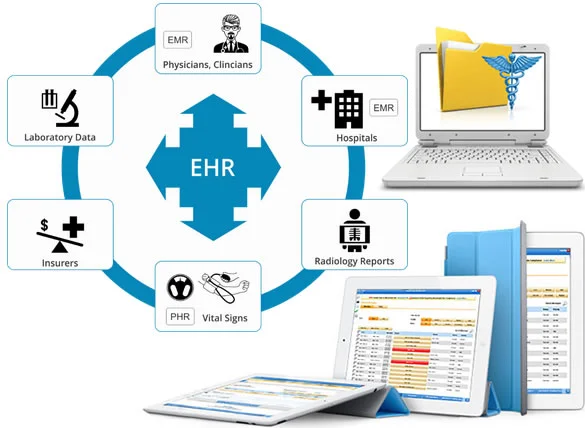Why Is Digital Inclusion Important?

The capacity of people and groups to access and use information and communication technology is characterized as digital inclusion (ICTs). Digital inclusion includes not just Internet connectivity, but also hardware and software availability, appropriate content and services, and training in digital literacy skills necessary for effective use of information and communication technologies.”
As the internet and ICTs become more widely used, communities and organizations will be able to extend and enhance their services and use increased connections to benefit the public good. Essential services and necessities, such as education, work, commerce, and social contact, are increasingly available via ICT or internet platforms. These technologies have a lot of potential to help with positive social impact. However, many individuals, and sometimes entire groups, are neglected, forgotten, or ostracised in reality.
As a result, these underserved people – frequently those who are less educated, have lower incomes, are elderly, or have disabilities – are not only missing out on the potential advantages of ICTs but are also not being involved in crucial community choices about digital projects. The school’s Centre for Digital Inclusion understands the value of a digitally inclusive community. Our research projects demonstrate how we are promoting digital inclusion by raising awareness and engaging in scholarship.
What makes Digital Inclusion so beneficial to people from all walks of life?
Issues that emphasize the necessity of digital inclusion:
1. Offering opportunities to disable individuals:
Digital inclusion, according to the National Council on Disability (NCD), increases employment participation. It also opens up new opportunities for persons with impairments. ICT is thought to close the gap between males, women, and disabled workers in terms of employment prospects. And the letter will be able to break free from the shackles of part-time or low-skilled employment.
This empowering of digital skills tackles issues such as socializing for people with disabilities. Additionally, the advantage of internet access promotes accessibility.
2. Healthcare administration
Digital inclusion also enables us to manage our health and well-being in more effective ways. It has aided us in the diagnosis of illnesses. And even educates the technologically educated people about the health hazards they face. Health systems are currently progressing at an unmatched rate because of these innovative and advanced technology-based solutions.
- According to the World Health Organization, innovative technology has paved the door for new knowledge sources and enhanced patient care to unprecedented levels.
- It has also made disease surveillance and monitoring easier. As a result, public health emergencies will be handled more effectively.
3. Educational accessibility
Education is no longer restricted to the physical architecture of conventional institutions, owing to contemporary technology. Digital schooling now allows students to complete their full K-12 education. Students can also enrol in the world’s top educational institutions without ever leaving their homes.
- For today’s students, the benefit of self-paced virtual learning is a godsend because they may choose from a vast range of alternatives through virtual means.
- These choices are especially ideal for students with learning impairments who come from underprivileged populations. And even for those who do not attend a traditional school.
4. Continued education
Another difference that ICT may make is that it can broaden the scope of learning opportunities. Digital technologies promote the notion of continuing education in addition to increasing regular educational possibilities through an online school. It’s an excellent way to fulfil one’s hunger for information. As a result, a person becomes more competitive and skilful in the global workforce.
- People of various ages may now acquire a solid job in their current business thanks to online education. And because of their increased skill sets, they can even look into more appealing career options.
- All of this is made possible by technological advancements because better-qualified people are always welcome in the workforce.
- Employees’ overall life happiness is also improved through lifelong learning and as they develop to become more effective and productive members of their organization’s workforce.
5. Increases the number of work prospects available through digital means
With alternatives like freelancing, internet employment, and self-paced projects, digital occupations have opened up additional youth opportunities. These new forms of working are perfect for many of our youngsters who are now unemployed or underemployed. They have a sense of self-worth as a result of their digital jobs. Additionally, it assists them in keeping up with the speed of the workforce.
- Job seekers may now work in these digital occupations and earn a living outside the traditional labour market. These options also assist women in providing economic assistance.
- Without any workplace hazards such as security or gender prejudices. For many segments of society, digital technologies are both more inexpensive and more effective.
- They can multitask. And they can make a living without jeopardizing their family life.
6. Entrepreneurship in the digital age is the way to go
In this post-Covid era, digital entrepreneurship is a viable option for small enterprises. It uses the power of digital technology to assist materialize several entrepreneurship processes.
According to Shriya professional independent Best Assignment Help In UK and essay writing service “this new paradigm shift is beneficial to society. And it has the potential to have great results. New tactics, risk management, and possibilities are all part of this new type of entrepreneurship”.
7. Increases job opportunities
According to the World Economic Forum, Candidates with practical learning opportunities have greater prospects in today’s post-Covid employment markets. In this competitive era of industry-specific abilities, digital literacy is the salvation for applicants. Candidates today require more than just the basic skillets to meet the changing and rising demands of the modern world.
- This implies that even for entry-level employment today, people must sharpen their abilities.
- Researchers also agree that having a good understanding of digital literacy improves one’s employability.
- Because the business today requires individuals with more advanced skill sets that are relevant to the quickly changing dynamic landscape, candidates with advanced skill sets are in high demand.
8. Increased salary and earnings
In addition, having IT skills and being digitally literate increases one’s compensation package in the workplace because information and communication technology (ICT) is critical to corporate innovation. It’s also linked to increased productivity. As a result of their sophisticated skill set, tech-savvy occupations enjoy a higher level of overall workplace efficiency.
Conclusion:
Teachers may start levelling the playing field by introducing more technology into the classroom using a blended learning paradigm. Traditional and digital education is combined in blended learning, which combines features of both pedagogies. This is a good way for students who haven’t had much experience with digital learning to get their feet wet.
Click Here to Read About Trending HealthCare Technology
However, educators must keep in mind that because of the variety in any given classroom, students will likely begin with varying degrees of competence and experience. This diversity also means that, when kids get older, they will most likely pursue a range of interests. It’s possible that they won’t all desire to study in the same way. However, this should not be because they do not feel like they are a genuine part of the digital learning that is taking place.
About Author:
Naomi Elena is a contributing writer to LiveWebTutors. She is a podcaster, style coach and has been a blogger and a professional blogger writing about educational skills, personal development and motivation since 2010. She operates a team of experts and qualified professionals who will provide high-quality Thesis Help Services in UK.


